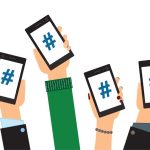
So far, 2020 seems to have put a target on the heads of small businesses. The COVID-19 pandemic continues to hit small to medium-sized businesses especially hard. Between state shutdowns and mandatory closures, small businesses are just trying to hang on.
Then, just when we thought 2020 had dealt us its worst, small businesses found themselves in the thick of yet another revenue barrier – a Facebook boycott.
In case you haven’t heard, major brands like Unilever, Starbucks, The NorthFace, and a slew of other businesses that make up some of Facebook’s largest advertisers made the decision to pause their Facebook ad campaigns during July. The rally against Facebook is aimed at encouraging the company to do more to put a stop to hate speech and misinformation on its platform. Many of these brands are going even farther, threatening to continue the boycott through the 2020 U.S. presidential election in November.
While this strategy may work for big brands with unfathomable marketing budgets and tons of other sales and marketing channels to fall back on, for small to mid-sized businesses, boycotting a major source of revenue – during a pandemic and near economic shutdown, nonetheless – isn’t as easy.
Small businesses that use Facebook to drive revenue can’t afford to completely cut the cord. Most are dependent upon the revenue they bring in from the social giant to run their operations. Especially today when most small businesses are just trying to survive, leaving Facebook is an unthinkable business move.
Is Facebook’s “big advertiser” void actually an opportunity for small businesses to come out ahead?
It’s easy to simply look at the Facebook boycott as yet another challenge facing small businesses today. But, what if hiding behind this ‘big advertiser’ void is a unique opportunity for small businesses to get a bigger return on their Facebook ad budget and come out ahead?
Right now, Facebook is losing many big advertisers that would otherwise be dominating their respective categories. This could end up benefiting small and medium-sized businesses in the long run. How? The challenge for small businesses on Facebook is achieving a large enough share of voice, or visibility, for the product or service they sell compared to their competitors.
For instance, if you sell coffee at a small coffee shop it’s safe to say your Facebook ad budget is less than that of Starbucks. On Facebook, you essentially pay for the number of people who see your ad. Therefore, the coffee shop with the bigger ad budget will get their ad in front of more Facebook users interested in coffee in that market.
If your ad dollars don’t allow you to reach a significant enough number of people and grab their attention – if you don’t capture a large enough share of voice –your bigger competitors with larger ad budgets can afford to drown you out.
Let’s continue with the coffee shop example. With the boycott temporarily removing Starbucks from the equation, there’s an opportunity for your small, local coffee shop to capture a greater share of user’s attention. This means that each dollar you spend with Facebook during the boycott goes father, your ads reach more potential customers, and you should expect, over time, to sell more coffee.
If you own a small business and have yet to spend advertising dollars on social media advertising, now could also be the right time to break into Facebook marketing. Facebook ads are relatively inexpensive and it doesn’t typically cost much to start seeing ad clicks and new visitors to your website. And since you can jump in right now and immediately get in front of more people than you would have before, you may see results from your Facebook ads even faster.
The Facebook boycott is putting America’s small businesses between a rock and a hard place
Sustaining revenue isn’t the only piece of this complex puzzle. Small business owners are having to weigh the risk of losing Facebook ad revenue with the risk of upsetting customers should they decide not to participate in the boycott. What do you do when keeping your business alive and supporting a cause come into conflict? How do you weigh the need to stay in business with the risk of appearing tone-deaf and potentially offending your customers?
These are the questions on the minds of America’s small businesses as they work hard to survive the ongoing effects of 2020’s major blows.
What if there was a way, however, to flip this dilemma on its head and sustain the revenue driven through Facebook advertising while still showing support for racial justice?
Keeping your business alive and voicing your support for racial justice do not have to be mutually exclusive
If you agree there’s a business case for either jumping in or doubling down on Facebook advertising while your largest competitors put their ads on hold, but you’re still grappling with how to do it the right way, there are a few ways to use the power of Facebook ads for the greater good.
- Launch an Ad Campaign that Voices Your Support for Racial Justice
Use Facebook ads as an opportunity to show even more support for racial justice. Develop a Facebook ad campaign that communicates a clear message of support and have your ads click from Facebook to a page on your website that goes into the details about how your company is combating racial injustice in your community or industry. - Donate a Portion of Your Facebook-Driven Revenue
Your website’s Google Analytics can show you a clear breakdown of where every dollar of revenue comes from online, including how much revenue Facebook ad sales generate for your business. While large businesses are boycotting Facebook, consider donating a portion of your Facebook advertising proceeds to a non-profit dedicated to social and racial justice reform. - Use Ads to Highlight Your Company Culture, Values, and Team
When running a Facebook ad, you aren’t limited to simply pushing a product. Your business can run an ad promoting a piece of content or create visual ads that highlight your mission. These softer ad tactics have the power to help your brand make an emotional connection with your audience and give your customers a sense of the values your brand stands behind.
As the world focuses on racial injustice and inequities more than ever before, Facebook ads can give your business the ability to showcase how your team and company culture reflect the feelings that so many others in the country are experiencing at this moment.
Whichever option or options you choose, focus your ads more on the cause and less on your company directly. By communicating your intent with your online community, you can make them feel good about supporting your business during the boycott.
Ultimately, make the decision that’s right for your business, customers, and community
No one knows your business like you do. The decision to continue to market your business through Facebook, or get started for the first time, is a judgement call that only you can make. But, it doesn’t hurt to seek a little guidance.
If you’re looking for some help and insight as you work through your Facebook marketing strategy now and in the future, contact us at Headline Consultants. We’re here to help!




